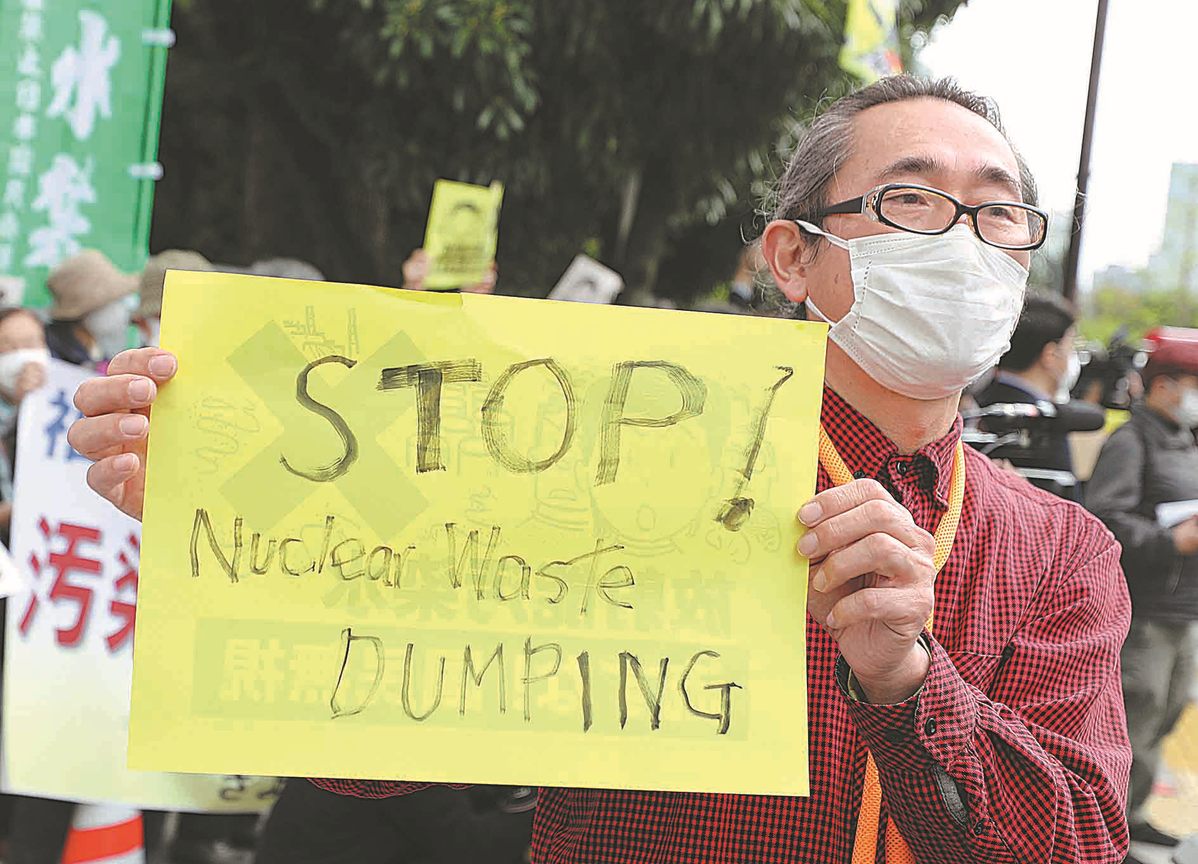The shadows grow longer in Fukushima


In response, Chinese Foreign Ministry spokesman Zhao Lijian said Japan must not discharge the contaminated water before a consensus is reached with all stakeholders, as well as with international agencies, after a thorough consultation. "This is a litmus test of Japan's commitment to international obligations," Zhao said.
On Aug 1, South Korean Minister of Oceans and Fisheries Cho Seunghwan said the government is considering whether to take the issue to the International Tribunal for the Law of the Sea. Cho said the government's primary goal is to prevent Japan from releasing the contaminated water. "We do not accept the release plan", he said.
Last month, a meeting of foreign ministers of the Pacific Islands Forum released a document criticizing Japan. The ministers said the ocean discharge could lead to "transgenerational impacts of great concern to the peoples of the Pacific".
In Japan, the condemnations of official policy, along with petitions calling for the reversal of the decision, have been constant since the ocean discharge plan was confirmed by the government in April last year.
Among the environmental groups denouncing the plan is FoE Japan. In a statement, it says the Japanese government and TEPCO had much earlier made written commitments on the matter, that "without the understanding of relevant personnel, no actions will be taken". However, the government still decided to go ahead with the ocean discharge without seeking advice from the parties involved, the statement says.
Civil society groups in the most-affected prefectures submitted a petition to Japan's Ministry of Economy, Trade and Industry and TEPCO in March. Reaffirming their opposition to the release of the contaminated water, they demanded that the government pursue other alternatives. Consumer groups and fisheries associations are at the forefront of this action.
The petition has collected some 180,000 signatures from residents in prefectures such as Fukushima, Iwate and Miyagi.
Masanobu Sakamoto, president of the National Fisheries Cooperative Federation of Japan, says the plan has not gained the support of the public and the fisheries industry and that the federation's firm opposition remains.
Katsuhito Fuyuki, the board chair of the Miyagi Consumers Cooperative Association, likewise says the government's disposal plan has failed to win public support.
"The impact of the 2011 nuclear accident remains and imports of Miyagi fishery products are still banned by nearby countries," says Fuyuki, adding that the decision would deal a further blow to the local economy.
























